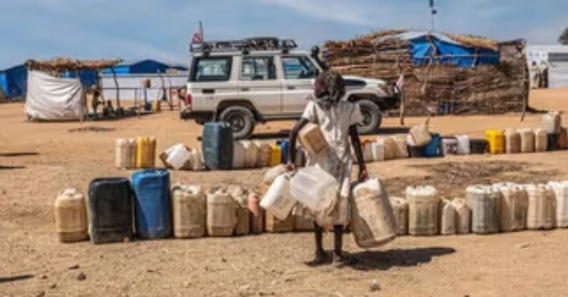Access to clean water remains a significant challenge in many parts of Africa. Clean water is essential for drinking, cooking, cleaning, bathing, farming, and many other daily needs. However, in some African countries, many people still do not have access to this vital resource. According to the World Health Organization (WHO), the United Nations Children’s Fund (UNICEF), and the Joint Monitoring Programme (JMP) for Water Supply, Sanitation, and Hygiene (WASH), the following are the top five African countries struggling with access to clean water in 2024:
1. Niger
As the largest country in West Africa, Niger faces significant obstacles in providing clean water to its population. Approximately 54% of the people in Niger lack access to clean water, largely due to persistent water shortages and droughts in its desert regions. These environmental conditions make it difficult to maintain a consistent supply of safe drinking water.
2. Papua New Guinea
Although Papua New Guinea is often associated with the Pacific region, it also faces similar challenges to some African countries. The rural population, particularly those living in remote communities, struggles with access to clean water, sanitation, and basic hygiene practices. The country is also prone to natural disasters, such as cyclones and flooding, which further exacerbate water scarcity and infrastructure damage.
3. Democratic Republic of the Congo (DRC)
In the Democratic Republic of the Congo, access to clean water is severely limited due to ongoing conflict, poverty, and disease. With nearly 64% of the population living in extreme poverty, many people rely on contaminated water sources for drinking, cooking, and washing. This widespread use of unclean water contributes to outbreaks of waterborne diseases such as diarrhea and cholera, posing serious health risks.
4. Chad
Chad is a landlocked country facing severe water scarcity and food insecurity. Recurring droughts and refugee migrations have strained the country’s limited water resources. About 54% of children in Chad lack access to basic water services, and only 10% have access to adequate sanitation facilities. Overall, 44% of the population does not have access to safe drinking water, including many refugees living in host communities.
5. Ethiopia
Ethiopia, with a population of over 120 million, is experiencing a major water crisis. More than 64 million people lack basic access to clean water. Although the northern highlands receive substantial rainfall, severe droughts and climate fluctuations have created significant water shortages, especially in rural areas, which make up 80% of the population. These challenges make it difficult for many Ethiopians to access safe water for daily use.
Despite efforts to improve water access, these countries still face significant challenges that require urgent attention to ensure all citizens can access safe and clean water.





